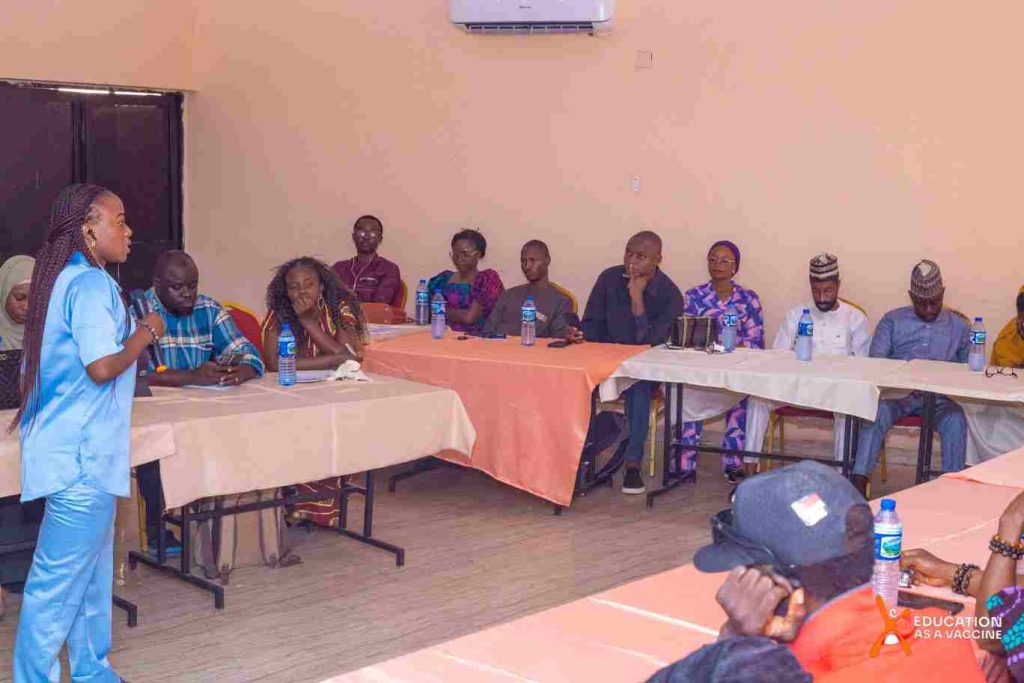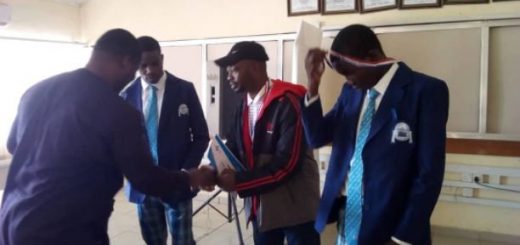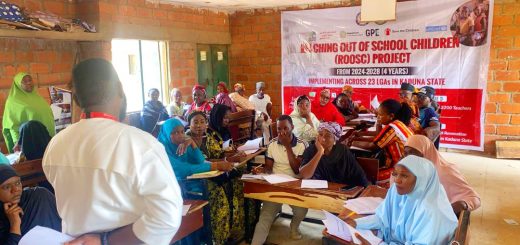EVA Expands Girls’ Education Project, Targets Accountability Gaps in Kaduna Schools
By Uangbaoje Alex, Kaduna
Education as a Vaccine (EVA) has raised fresh concerns over poor learning conditions for girls in Kaduna State, warning that enrollment gains will continue to collapse unless government urgently fixes WASH gaps in public schools.
Speaking during a one-day media dialogue on girls’ education and funding, Mercy Abalaku, Senior Programme Officer with EVA, revealed that although the organisation successfully enrolled more than 150 girls back into school during its initial three-year programme, it soon became clear that getting girls into school was only half the job.
“We realised that enrollment alone is not enough. We cannot keep sending girls back to schools where there is no water, no proper toilets, or even safe spaces for them to learn,” she said.

According to her, education statistics often celebrate rising enrollment numbers without tracking whether schools actually have the facilities girls need to remain in class.
This gap inspired EVA’s new initiative – *Fostering Accountability for Girls’ Education* – a project designed to build the advocacy capacity of schoolgirls and strengthen accountability within the education sector.
The project is being implemented across three LGAs: Sabon Gari, where the first phase has been completed; Igabi, currently hosting the 2024/2025 cycle; and Kachia, where implementation begins next year.
In each location, EVA trains 40 girls to monitor school facilities, engage community stakeholders, participate in decision-making spaces and demand improved learning environments. The girls are also supported to attend key community and policy events where their voices can influence education outcomes.
Abalaku stressed that media engagement is now central to the project’s strategy for impact.
“We are partnering with the media to expand awareness and sensitisation, especially to educate parents on the need to allow their girls to go to school.
“The media plays a powerful role in shaping public opinion, and we believe that consistent storytelling and reporting can shift harmful norms and encourage communities to support girls’ education.
“This is a partnership we hope to sustain for a long time because we want to make a lasting impact before the project comes to an end,” she said.
She explained that the first year of the project did not involve the media, a gap EVA has now addressed through the media dialogue, which encourages journalists to publish the girls’ stories, articles and advocacy messages.
The initiative also features interactive radio programmes and community dramas, giving girls platforms to discuss issues affecting their education and inspire action.
With its renewed focus on accountability, EVA says the goal is simple: empower girls to speak up, challenge neglect and push for schools that are safe, inclusive and truly conducive for learning.





